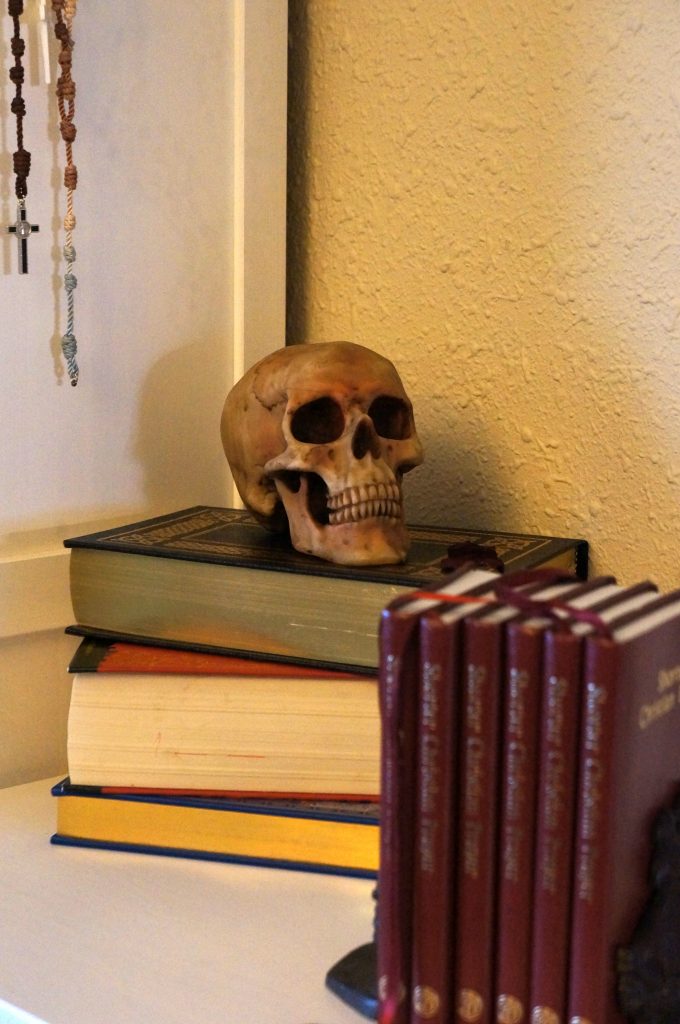Hands to Work, Hearts to God
There’s always an eery stillness to Holy Saturday, that day between Christ’s death and resurrection. It reminds me of the shock of grief after someone dies, when you’re aware that someone is suddenly absent, but it’s too new and fresh to be fully real. Their absence follows you like a shadow and time becomes theoretical instead of actual. Tasks of daily life become the track beneath your feet, carrying you from one task to the next, sometimes mindlessly.
On Holy Saturday there’s so much preparation that goes into an Easter celebration and feast that I have to make myself a list of what to do, otherwise I find myself feeling listless and unaware of time, like a pseudo-grief. This Holy Saturday, I find myself thinking of the myrrh-bearers, the women who, in their shock and grief, gathered oils and ointments to bring to the tomb. It must have been strangely comforting to clean his wounds and wrap his body in fragrant linen.
Just this past year, a dear friend of mine passed away quite suddenly. It was traumatic for her husband and children, and though they were with her in those last moments, there wasn’t much of a goodbye, not much opportunity for closure. The days that followed were beautiful: they prepared a pine coffin by writing notes along the inside and lined it with fabric and herbs. They prepared her body themselves and laid her to rest. They wept as they knelt in the dirt and planted flowers to adorn the final place of their mother’s body. They comforted her with song, drank in her death with their senses, then mourned with their tears and sweat.
As I learn more about trauma, I am more and more amazed at how God made us, how our body, mind, and spirit are intimately connected and affect one another, both for good and for ill. With strong emotions, especially grief and terror—which the disciples and women assuredly felt astutely on Holy Saturday—putting our hands to work and hearts to God is a way to actively pray and process.
In some small way, preparing food and filling Easter baskets so my family can enter into the joy and rest of Easter Sunday is prayerful and contemplative. There have been and will be greater moments when acts of service are less delightful and more important. The adult children of my friend who passed away had also, countless times before, completed acts of service with their mother in both joyful and difficult times. In the discipline of putting their hands to work and hearts to God, they were able to do what needed to be done with devotion and love when tragedy shocked them. Just so, the women who rose up and put their grieving hands to work in their darkest moment had done it thousands of times before in little ways when there was less at stake, and so were prepared to do something as difficult and powerful as prepare God for the grave.

